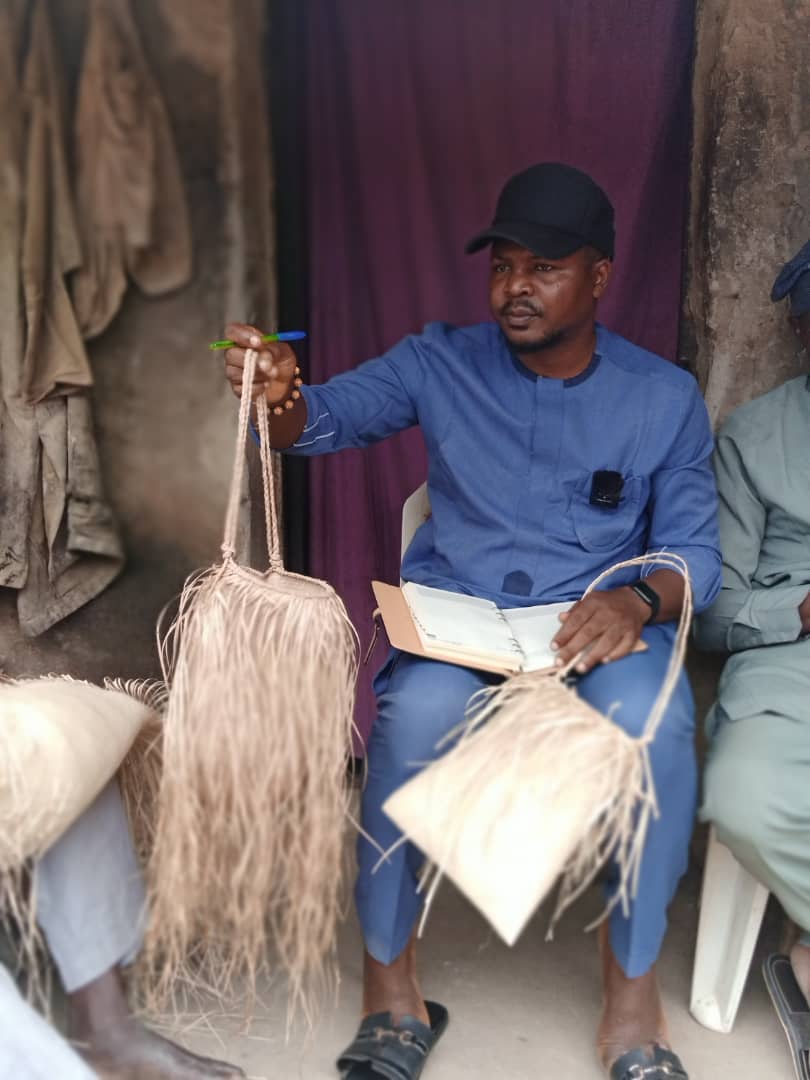Amula (Marriage) in Gbagyi Culture: A Deep-Rooted Tradition
Marriage, or “Amula,” holds a place of profound significance in Gbagyi culture, serving as both a sacred and social institution. For the Gbagyi people, who are primarily found in central Nigeria, spanning states like Niger, Nasarawa, Kaduna, Kogi, and the Federal Capital Territory (FCT), marriage is not merely a union of two individuals but a ceremonial bond that connects families, communities, and the spiritual world.
Sacred Aspects of Amula
In Gbagyi culture, marriage is considered sacrosanct, a sacred event that traditionally involves the guidance and blessings of ancestors. Marriage is a revered institution because it brings a man and woman together in matrimonial harmony.
Historically, this union was sanctified through the involvement of an azokuda/beri (diviner), who would invoke the azakwoyi (ancestors) during a private consultation. This ritual was more than just a formality; it was a spiritual exercise intended to seek blessings, ensure the couple’s destined path, and confer additional protections like good health, fertility, and prosperity.
Although the overt practice of ancestral consultation may have waned over time, it is widely believed that some Gbagyi people still engage in these rituals secretly. This persistence highlights the deep spiritual roots embedded in the tradition of marriage among the Gbagyi, where the blessings of the ancestors are still considered vital to the success and harmony of the union.
Social Dimensions of Marriage
Amula is not only a sacred union but also a social cornerstone that reinforces community bonds. The social aspect of Gbagyi marriage reflects its integrative nature, as it serves to unite families and strengthen communal coexistence. W. Morgan, who documented Gbagyi practices in 1913, observed that marriages seldom occurred within the same village, likely as a measure to avoid marrying within close kin. However, there are exceptions, such as the practice where a Gbagyi man might marry from his mother’s house, which suggests a flexible approach to marital traditions.
Marriage in Gbagyi society bestows a new status and respect upon the individuals involved. It marks a rite of passage that elevates them to full membership within the community, enabling participation in various communal and spiritual rites. This new status is not just personal but also communal, as it reflects the individual’s progression in life and their contribution to the continuity of Gbagyi/Gbari culture and values.
The Marriage Process: Tradition Meets Modernity
The process of marriage among the Gbagyi is elaborate and steeped in tradition, though it has evolved with time. Traditionally, the process could begin with a young man becoming attracted to a maiden or through an arrangement made by the parents when the prospective bride and groom were still children. The requirements for marriage were numerous and included both material and symbolic items.
Key among these was the presentation of oje (beer) to the bride’s parents, which served as an initial offering of goodwill. The groom was also expected to participate in fadobe (communal farming) for several years, typically between four to seven, as a way of demonstrating his commitment and ability to provide. Additionally, the provision of fifty bundles of guinea corn was essential, along with other items like baskets of rice and cowry shells, which have since been replaced with money.
Despite these changes, the core elements of the marriage rites remain intact. The use of money as a substitute for traditional items does not diminish the cultural importance of the rituals; rather, it reflects an adaptation to modern economic realities while maintaining the symbolic essence of the traditions.
The Role of the Kushi Masquerade
A unique and crucial element of Gbagyi marriage is the Kushi/amwamwa (Masquerade), a powerful spiritual symbol believed to represent the azakwoyi (ancestors). During the marriage ceremony, the Kushi masquerade might appear to entertain the guests, but its role goes far beyond mere entertainment. It is believed to have the ability to peer into the future of the marriage through azoku (divination). The presence of the Kushi is seen as essential to the success of the marriage, and its absence is thought to bring misfortune, such as barrenness or discord between the couple.
The Kushi masquerade dance is particularly valued for its supposed ability to cure barrenness, making it a critical component of the marriage rites. Even those Gbagyi who have converted to Christianity or Islam often find ways to incorporate these traditional elements into their wedding ceremonies, either openly or in secret. This blending of religious beliefs with traditional practices reflects a nuanced approach to cultural identity, where the Gbagyi/Gbari people strive to honor their heritage while adapting to new religious frameworks.
Cultural Resilience and the Preservation of Tradition
The Gbagyi people have a rich cultural heritage that they continue to preserve, even as they adapt to the changing times. Marriage remains a vital part of this heritage, serving as a means of cultural expression and continuity. The tradition of fulfilling marriage rites, whether in their original form or through modern adaptations, is cherished among the Gbagyi, who see it as a way to maintain their identity and pass it on to future generations.
This cultural resilience is evident in the way Gbagyi people approach the intersection of tradition and modernity. While many have embraced new religions, they continue to participate in traditional rites, seeing them as complementary rather than contradictory. For some, this participation is a way of “giving to Caesar what is Caesar’s and to God what is God’s,” a pragmatic approach to balancing cultural and religious obligations.
In summary, Amula (marriage) in Gbagyi culture is a complex and multifaceted institution that encompasses sacred rituals, social bonds, and cultural continuity. It is a tradition that has withstood the test of time, adapting to modern influences while retaining its core values and significance. For the Gbagyi/Gbari people, marriage is more than just a union of two individuals; it is a celebration of life, community, and the enduring legacy of their ancestors.

Leave a Reply